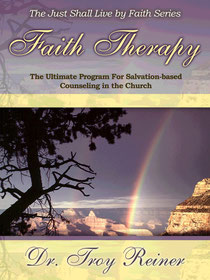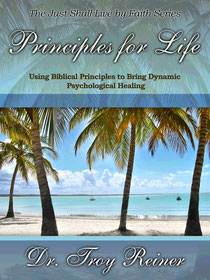Biblically-derived, salvation-based Faith Therapy
Struggling with health and weight issues? To see our new low-cost Health/Weight Coaching program click here.
To watch our free videos select "courses" and watch our video classes on the syllabus pages. The slide show below runs continuously and does not have sound.

There is a desperate need for salvation-based Christian counseling and life coaching in the church. America and much of the world is becoming biblically illiterate and it is having an affect on our society. Nearly one-half of marriages end in divorce, at least one-fourth of the women have been sexually or physically abused, at least one-fourth of the members of our society are codependent, and one out of ten are chemically dependent. Almost everyone knows someone who is in desperate need of help. Unfortunately, these statistics apply in the church as well as in society. Consequently, every Christian needs at least a basic knowledge of how to effectively help these hurting people, and every church needs at least a pastor who is also qualified to counsel, a certified or degreed counselor to assist him with long term difficult cases, support groups, and a Bible-based life coach to help members of the congregation find and fulfill their callings.
Every Church Needs Support Groups, Counselors, and Life Coaches.

Every flock of sheep needs a shepherd or they will scatter. As the flock grows it will eventually need a veterinarian (the counselor) to tend the sick sheep, a sheep dog (the Bible-based life coach) to help them find and achieve their calling, and under-shepherds (small group/support group leaders), because one shepherd realistically can only spend personal time with a limited number of sheep.
Another reason to incorporate these roles into the church body is that counseling, life coaching, and support groups provide an excellent means for growing your church. In the Outreach Magazine Pastor Rick Warren stated that Celebrate Recovery groups draw 70% of their members from outside of the church and that 85% of them remain in the church.
Support groups automatically result in some of the members wanting more individualized counseling. Counseling provides an excellent means of leading people to Christ because when they come for help they will find that Christ is the answer that most of them have really been looking for. The need for the counseling ministry continues to grow as our society comes into the church and the post-Christian culture continues to deteriorate around us.
In addition, many people in our society and churches also need direction in their lives. This is the mission of the Life Coach--to help people find their calling and to disciple them in their Christian lives and calling until they achieve it.
Every pastor needs to watch this video.
There are four levels of Christian counseling training:
A. Basic counseling is appropriate for every Christian. It is provided free through the video courses on this website.
B. Certification provides a higher level of training and practical Christian counseling experience for pastors, support group leaders, lay counselors, addictions counselors, marriage and family counselors and life coaches who feel called to these ministries. For more information select the Certifications link on this page.

C. A Christian bachelor's and master's degrees are for those called to a part or full time paid counseling position in the church. A state license is not required to do Christian counseling as an ordained or licensed minister or as part of an official program of a church. Unless you are an ordained pastor a degree is required in most cases to obtain counseling liability insurance, a necessity to cover yourself if counseling fees are charged. Life coaches do not usually require liability insurance to charge fees. College Degrees are provided by transferring credits earned directly on this website toward a degree from Life Christian University. Please see our Courses for Credit and Degree pages.
D. A state counseling license can only be obtained through secular counseling training to obtain at least a master's degree at a regionally accredited university or college. You must meet the requirements of your state of residence so that you can accept third party health insurance payments for your services to clients. Of course, even if you are a licensed secular counselor you should should take our training in order to effectively counsel in a church environment.
There are two basic methods of obtaining in-depth training in Christian counseling through this website.
- A. In residence living in Wichita, Kansas, or on-site training. All five of our courses for a pastoral or lay counseling certification are offered each year for the convenience of our residence students. In addition, discussion and supervision for practicums is available at Word of Life North on Wednesday nights from 8:00 pm to 9:00 pm throughout the year. Residence training is offered on Wednesday night from 6:30 until 8:00 pm so you can have direct access to the instructors and we can provide face-to-face supervision, counseling experience, counseling facilities and clients at Word of Life Counseling Center. For more information select the Certification page and then select the certification you are interested in. If you would like more information on our current residence program call 316-644-0316 or E-mail us at submit@freechristiancounselingtraining.com.

- B. You can also obtain all of our courses and certifications online by reading the text books, watching the videos, writing the required papers, taking the course tests and submitting your practicum notes of your counseling sessions online for supervision. Of course, any questions or discussion you may want will be answered via email.
Our Basic training on Christian Counseling is provided by "The Just Shall Live by Faith" series of books published by Reiner Publishing.

Faith Therapy--Understanding salvation by faith and resolving deeply-rooted problems. This book and course provide a psychological understanding of the process of salvation by faith, winning the trial of your faith, how to increase faith, how to assess faith, and how to apply it to meet your deepest needs for self-worth, significance, security, and love. It includes models for conquering the common problems of low self-image, pride, selfish desires, strife, fear, spiritual oppression, lust, and for developing healthy attachment. It is easily taught and applied in churches because it is completely based on the Bible.
Purchase one Faith Therapy book direct $18.43

Transformation!--Biblical Models for counseling some of Life's most difficult and complex problems in the church. This book and course contains many new insights including a comprehensive plan for Christian counseling derived directly from the Bible, in-depth biblical answers for complex psychological problems based on the types and shadows interpretation of biblical stories, models and quick reference guides for counseling 20 of the most difficult problems in the church today including inferiority, abandonment, dysfunctional families, setting boundaries, six types of codependency, abuse, four types of addictions, bitterness, depression, grief, and suicide.
Purchase one Transformation book direct $18.57

Revelations That Will Set You Free--An eight step road map for spiritual growth. This book and course material includes a summary of biblical growth models and Old and New Testament revelations of the character of God, a comprehensive explanation of each of the eight steps of spiritual growth found in 2 Peter Chapter 1: Faith, for salvation; Virtue, making Jesus Lord; Knowledge, learning I cannot keep the law; Self-control through grace, Perseverance by knowing who I am in Christ; Godliness allowing Christ to live His life through me, Brotherly Kindness, letting Jesus love His bothers through me: and Love, letting Jesus be Himself through me. It also provides a model from the Bible demonstrating how each step is achieved so you can grow spiritually toward Christian maturity.
Purchase one Revelations book direct $18.43

Principles for Life--Using biblical principles to resolve problems not directly addressed in the Bible. This book and course explains 44 of the most important principles in the Bible from a psychological perspective and provides an in-depth method for developing counseling plans using biblical principles for common psychological problems based on Proverbs Chapter 3. This material includes a discussion of 13 classical methods of biblical change, a new model for understanding the human heart called "The Train of Psychological Wholeness," and techniques for applying biblical principles in counseling. It includes counseling plans and methods for treating anxiety, panic attacks, obsessions, compulsions, sexual abuse, domestic violence, marital problems, and Borderline Personality Disorder.
Purchase one Principles book direct $18.86
Beloved, if God so loved us, we ought also to love one another. 1 John 4:11


















